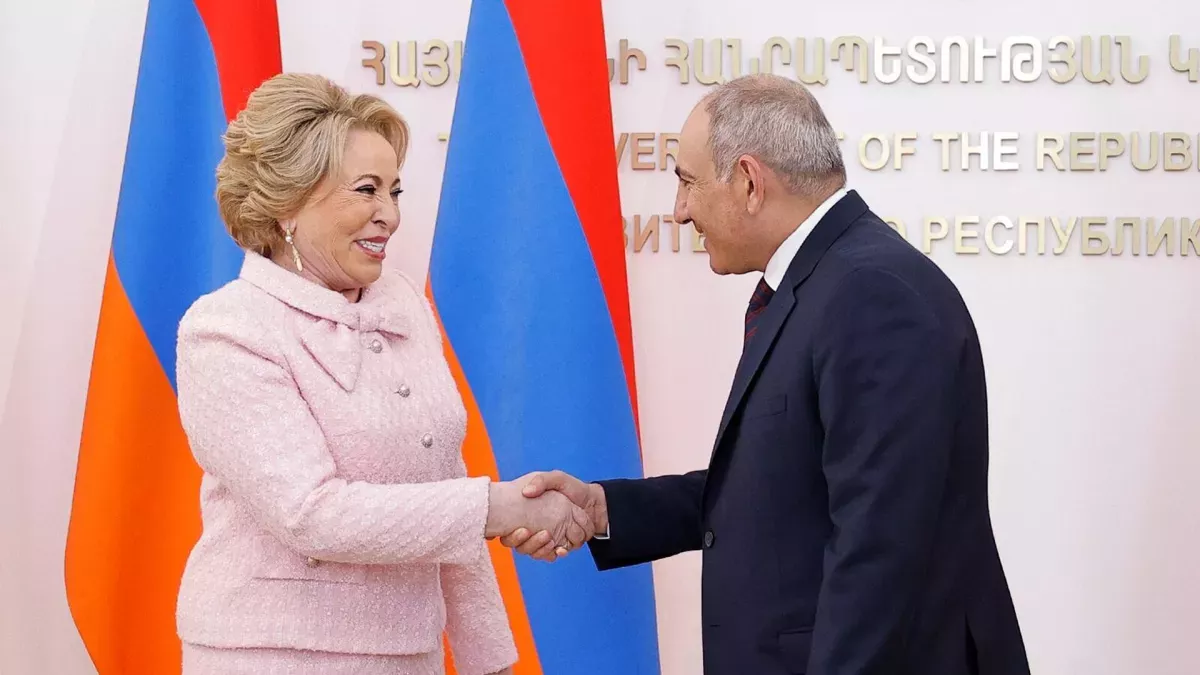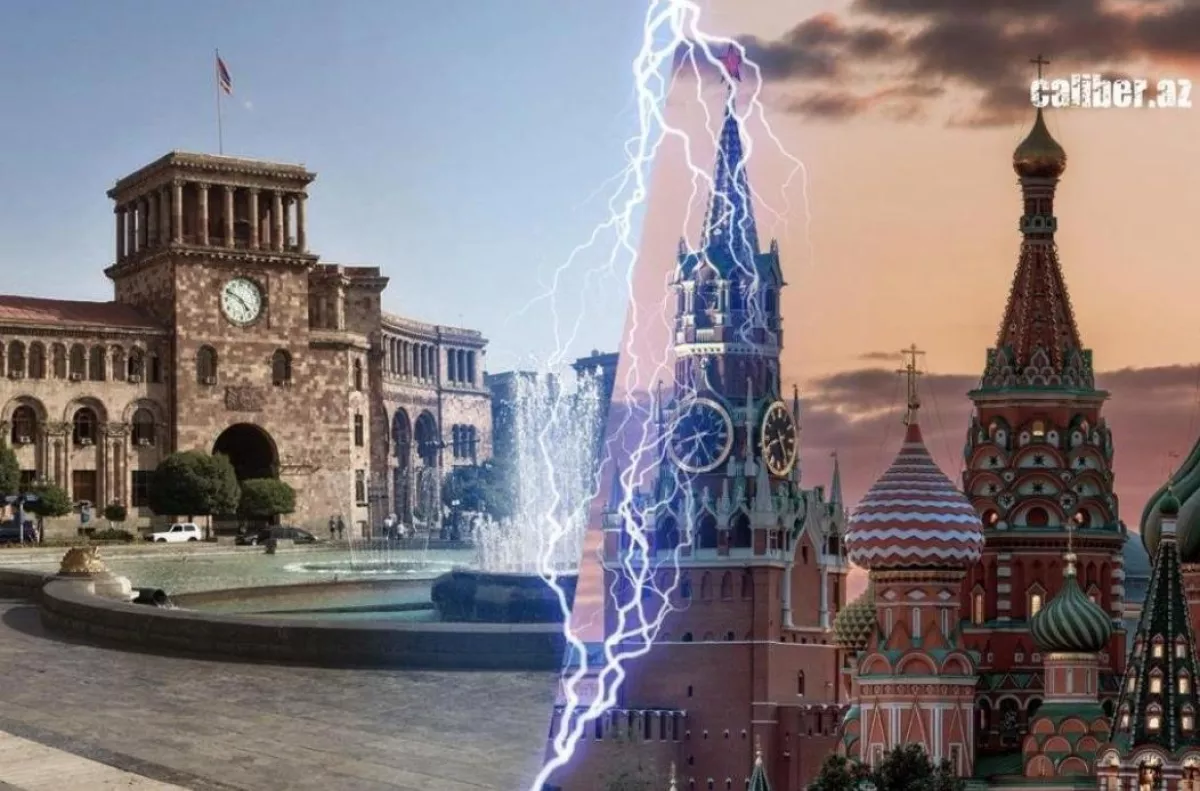Dreaming of Europe in Moscow's tight grip What Matviyenko’s Visit to Yerevan Brought to Light
The official visit of Valentina Matviyenko, Chairwoman of the Federation Council of the Federal Assembly of Russia, to Yerevan on June 5–6 once again confirmed Moscow’s determination to keep Armenia within the framework of its policy in the South Caucasus.
Also noteworthy in this context are the Federation Council speaker’s optimistic statements regarding the prospects of Armenian-Russian relations, which today are, to put it mildly, clouded by Armenia’s constant overtures toward the West. During a bilateral meeting with the Speaker of the Armenian National Assembly, Alen Simonyan, Matviyenko expressed satisfaction with the resumption of political dialogue with Yerevan at the parliamentary level, noting Russia’s interest in developing and expanding multifaceted cooperation with Armenia.
“Today we are natural allies. We are strategic partners,” Matviyenko stressed, sending this message also to Armenia’s Western patrons. In addition, through this statement, Moscow is diplomatically reminding its wayward — yet still strategically important — outpost in the South Caucasus that it, not the West, remains the republic’s main ally and the genuine guarantor of its security. That is the first point.
Secondly, when referring to multifaceted cooperation, the Russian side is likely aiming to solidify its presence in Armenia not only politically and economically but also culturally and educationally — with a particular focus on reviving the Russian language in the country. In recent years, there has been a noticeable decline in its use. The campaign to push out the Russian language began during Serzh Sargsyan’s presidency and has intensified further since Nikol Pashinyan came to power in May 2018.

It is paradoxical, but true: this has in no way hindered the dominance of individuals of Armenian origin in leading Russian media outlets — a situation that, incidentally, continues to this day. Armenian propaganda, having secured a strong foothold within the Russian expert community, has been freely promoting purely Armenian interests to the broader public for many years. It has consistently worked to discredit Azerbaijan and Türkiye and to drive a wedge into their relations with Russia.
Thirdly, Moscow has repeatedly signalled its growing frustration with Armenia’s “sitting on two chairs” policy. It is therefore highly likely that during the one-on-one meeting between Nikol Pashinyan and Valentina Matviyenko — which, according to Armenian media, lasted significantly longer than scheduled — the future direction of Armenia’s foreign policy was a key topic of discussion.
It is certain that the parties also discussed the Armenia-Azerbaijan agenda, which, as is well known, remains under Moscow’s close scrutiny. Interestingly, following the meeting, Valentina Matvienko stated that there is no trust crisis between Russia and Armenia.
“We went through the entire agenda of bilateral relations. Without a doubt, the trade and economic ties between Russia and Armenia come first. They are developing very dynamically — just last year, there was a record volume of mutual trade,” she said.
The optimistic statement by the head of the Russian Federation Council echoes recent remarks by Foreign Minister Sergey Lavrov that Moscow and Yerevan have moved past a period of distrust and grievances. However, it contrasts with the official position of the Armenian side.

It is worth recalling that recently Armenian Foreign Minister Ararat Mirzoyan stated, “Armenia and Russia are partners, but that does not mean everything between them goes smoothly.” His remarks suggest that Yerevan was subtly expressing dissatisfaction with Moscow’s pressure over Eurasian integration. Indeed, Russia effectively forced the Armenian side to postpone the discussion of the bill to initiate the country’s accession process to the EU. Yet, even after this, the Armenian authorities have not provided any concrete clarity on their choice of future development model. In practice, Armenia continues to keep this issue in limbo, hoping to benefit both from its membership in the Eurasian Economic Union (EAEU) and close cooperation with the EU.
However, recent visits by Russian officials to Armenia indicate that Moscow maintains a tight grip on Yerevan and will use every means to prevent the fulfilment of Yerevan’s European ambitions.
Whether Armenia will make a clear choice between Russia and the West in the foreseeable future seems unlikely. Yet, there is no doubt that Moscow’s policy of “soft pressure” on Yerevan will continue to intensify.








